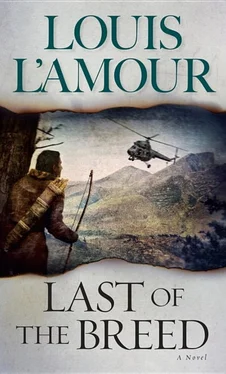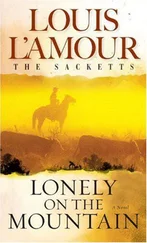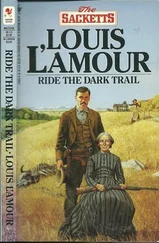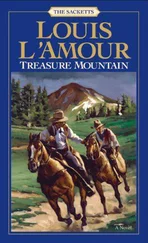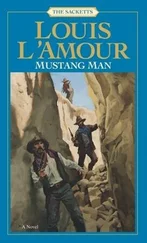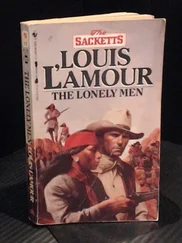Louis L'Amour - Last of the Breed
Здесь есть возможность читать онлайн «Louis L'Amour - Last of the Breed» весь текст электронной книги совершенно бесплатно (целиком полную версию без сокращений). В некоторых случаях можно слушать аудио, скачать через торрент в формате fb2 и присутствует краткое содержание. Город: New York, Год выпуска: 2010, ISBN: 2010, Издательство: Random House Publishing Group, Жанр: Триллер, Историческая проза, Приключения про индейцев, на английском языке. Описание произведения, (предисловие) а так же отзывы посетителей доступны на портале библиотеки ЛибКат.
- Название:Last of the Breed
- Автор:
- Издательство:Random House Publishing Group
- Жанр:
- Год:2010
- Город:New York
- ISBN:978-0-553-89935-1
- Рейтинг книги:3 / 5. Голосов: 1
-
Избранное:Добавить в избранное
- Отзывы:
-
Ваша оценка:
- 60
- 1
- 2
- 3
- 4
- 5
Last of the Breed: краткое содержание, описание и аннотация
Предлагаем к чтению аннотацию, описание, краткое содержание или предисловие (зависит от того, что написал сам автор книги «Last of the Breed»). Если вы не нашли необходимую информацию о книге — напишите в комментариях, мы постараемся отыскать её.
Last of the Breed — читать онлайн бесплатно полную книгу (весь текст) целиком
Ниже представлен текст книги, разбитый по страницам. Система сохранения места последней прочитанной страницы, позволяет с удобством читать онлайн бесплатно книгу «Last of the Breed», без необходимости каждый раз заново искать на чём Вы остановились. Поставьте закладку, и сможете в любой момент перейти на страницу, на которой закончили чтение.
Интервал:
Закладка:
Zhikarev slept, uneasily, bouncing around on the rough road, listening to the drone of the driver’s voice. It was warm in the truck’s cab and the driver had covered the seat with sheepskin.
Suddenly, a long time later, the truck pulled over into the shadows under some trees. A hand touched Zhikarev’s shoulder.
“Go over there under the trees. It will be cold, but you wait there.”
Zhikarev gathered himself and buttoned his heavy coat. He took up his cane and got clumsily down from the cab.
“Pick you up on my way out from Khab.” The driver hesitated and then said, “I would stay hidden was I you. The word’s out to pick up a man with crippled feet. Might be using a cane.”
The truck rolled away, pushing an avenue of light before it. How long had he ridden? For days and nights, it seemed.
So they were looking for him? Well, he had expected it. This driver seemed a decent sort. If he could only get to the coast. Nobody knew about his cousin, or he did not believe they did. He could stay there until things quieted down, and then back to the border and after that, Hong Kong.
It was cold, bitterly cold! Using his cane, he hobbled across the road and into the trees.
Chapter 22
Peshkov met them in Aldan. Colonel Zamatev took an instant dislike to the man, but that was the trouble with this business. You encountered many such, and you had to handle them with gloves for they might know something. Yet they were liars as well as traitors, and one had to be careful. Always, there was the chance of an ambush such as had occurred a few months ago, when several KGB officers were led into a trap and murdered. There was so much crime these days. It was never in the newspapers unless there was a trial and the judgment reported.
Peshkov would lead them to the village. Stegman glared at him from cold blue eyes. “If anything goes wrong,” he said, “if there is trouble, I will kill you first.”
Peshkov swallowed. “There will be no trouble. These people will not fight. Most of them are old people or children.”
Hours later they descended on the village. They struck swiftly and from all sides. And they found nothing.
At one shack, there was an old man sitting in the sun, with several grandchildren playing nearby. Inside the crude hut was an old woman with a samovar, making tea.
Every other house was empty.
“I tell you,” Peshkov said desperately, “they were here! The man Stephan Baronas lived there, with his daughter! Day after day I have seen them here!”
Alekhin looked around the cabin. He touched the ashes of the fire with his fingers. “Cold,” he said. He knew he could find something, and later he would look. He did not like Peshkov and enjoyed seeing the man sweat.
“They are gone,” Peshkov said. “I cannot understand it.” He was bewildered. “Where would they go? How would they go?”
“You have led us up a blind alley,” Zamatev said coldly. He walked across to the old man sitting in the sun. “Grandfather” — he pointed — “where are the people who lived in that house?”
The old man’s eyes were vague. His voice trembled with age. “Salischev? He has gone. I do not… I do not remember when. Long ago, I think. Sometimes campers come.” He looked up, suddenly angry. “Men come and stay; they kill game; they take food from us. They stay in that place or” — he waved a hand — “in one of these. They steal. Evil men—”
“We are looking for Stephan Baronas and his daughter, or the man Borowsky.”
The old man shook his head. “They never say their names. They come and they go. They are strong young men and should be in the army or working on BAM. BAM? Is that the railroad? We had a railroad when I was a boy. It was down by the Amur.” He shook his head. “I never liked it. Too close to China! Those yellow bastards, one cannot trust them! I wouldn’t trust them!”
“Baronas,” Zamatev said patiently. “We were told he lived in that cabin.”
“We are alone. Alone! I do not want to be alone! I want to talk! And there are only those strangers. They are hooligans, all of them! Hooligans!”
“Did you know Stephan Baronas?” Zamatev was patient.
“They come and they go. Sometimes they speak, sometimes they do not.” He puckered his brow and squinted. “Baronas? Is that a Russian name? I think not.”
Zamatev turned angrily. “Peshkov? Do you know this man? Who is he?”
Peshkov was sweating. “I do not know him. He is here. He has always been here. There’s been no reason—”
“You brought me here to find the American. You spoke of this man Baronas. There is no such man here or the daughter. You have lied to us.”
“No! No, please! I have not lied! They were here. There were many of them, but they are gone!”
“That place,” Zamatev pointed, “has not been lived in, probably, for months!”
Alekhin sat on a fallen log and watched. Of course it had been lived in, but they had not asked him. It had been lived in not long since, and only a clumsy effort made to conceal the fact. He did not care about all this. It was a waste of time. Soon he would be on his way, and he would find this American. He knew where he was going now and knew the farther he went the easier he would be to catch. There was no hurry. He would get him in his own good time. Meanwhile this crazy old man was making a fool of them. And if they tortured him they would get no more from him.
Alekhin was contemptuous of Peshkov, and he was pleased to see him embarrassed.
Obviously the people here had scattered and might return again when things quieted down. What interested him was where the American had lived, certainly not here.
He got up and walked across the small clearing. If he had visited the Baronas family, then he would have left from there. He stood in front of that shelter and looked around. After a bit he walked past the corner of the place and looked up through the trees.
Gathering fuel, they had broken the dead branches from the lower part of the aspen trunks. They had picked up whatever had fallen to the ground, too.
There were old tracks under the trees. Some big square heels he recognized as tracks made by Peshkov. Smaller, older tracks evidently left by the woman. He moved up through the trees. Peshkov’s tracks were days old but had not been disturbed. Nothing had been up here since.
Alekhin stopped and studied the ground. Faint smears over Peshkov’s tracks here. He studied them thoughtfully, then went on. Peshkov had stopped, flatfooted, his two big feet side by side, the tracks blurred a little as though he had moved. Something had stopped him right about here, stopped him abruptly. There were smudges behind him. He walked about, came back to the tracks, and studied them some more. Somebody had slipped up behind Peshkov and stopped him. A knife in his back, or a gun. The American probably had no gun and did not even want one. He could have taken the AK-47 from the soldier he had killed at the helicopter, but he had left it.
No ammunition in it, of course, but that was not it. The American wanted to kill silently. A gun was noisy. It attracted too much attention.
Why had he not killed Peshkov? He was weak, this American. He should have killed him and just carried the body off and dumped it. With a man like Peshkov, who would care?
He worked his way up through the trees. The American was wearing something soft on his feet. What they called moccasins. His shoes had worn out, and he had used the skin of an animal to make shoes.
It was not an easy trail to follow and it was many days old, but nobody had been this way before. He lost the trail, found it again, and then found the cave.
A nice place. Oh, a very nice place! Spots of grease from cooking left on the rock, the ashes of his fires. Very small fires of dry wood. Very little smoke, not much light from the fire. Yet this place would have been warm.
Читать дальшеИнтервал:
Закладка:
Похожие книги на «Last of the Breed»
Представляем Вашему вниманию похожие книги на «Last of the Breed» списком для выбора. Мы отобрали схожую по названию и смыслу литературу в надежде предоставить читателям больше вариантов отыскать новые, интересные, ещё непрочитанные произведения.
Обсуждение, отзывы о книге «Last of the Breed» и просто собственные мнения читателей. Оставьте ваши комментарии, напишите, что Вы думаете о произведении, его смысле или главных героях. Укажите что конкретно понравилось, а что нет, и почему Вы так считаете.
